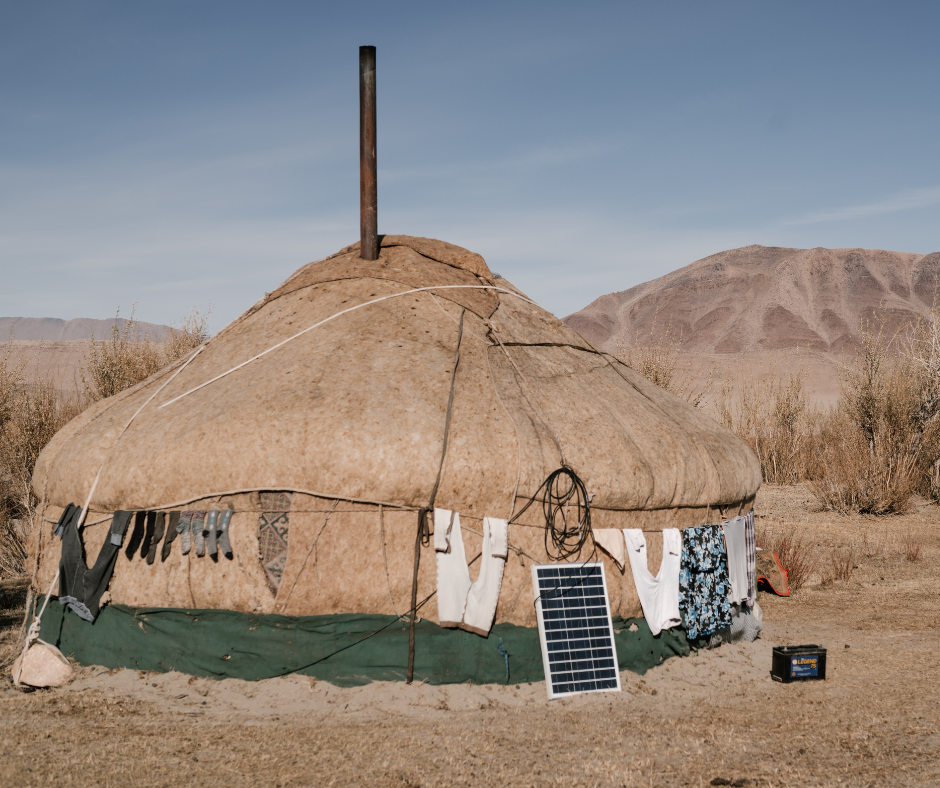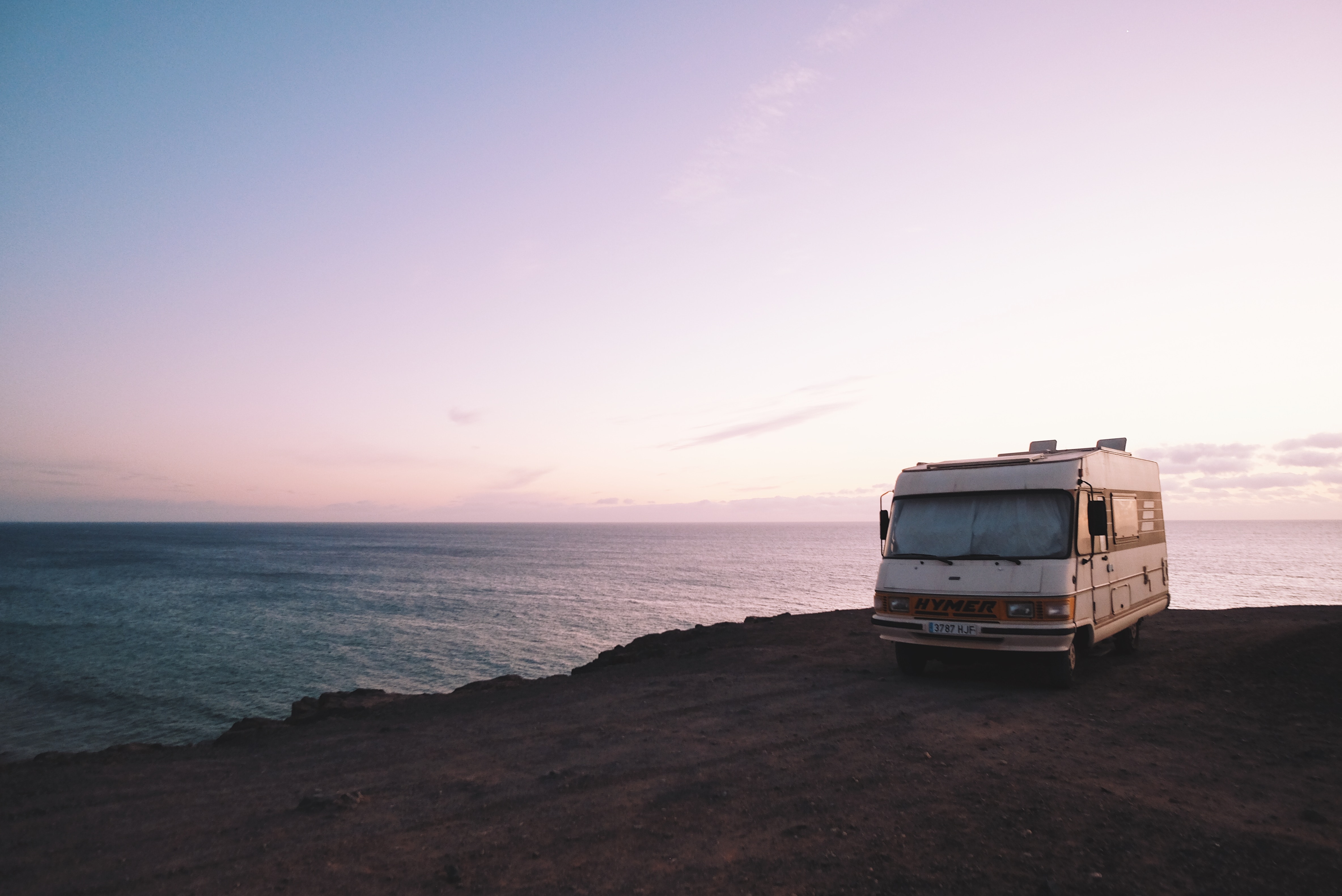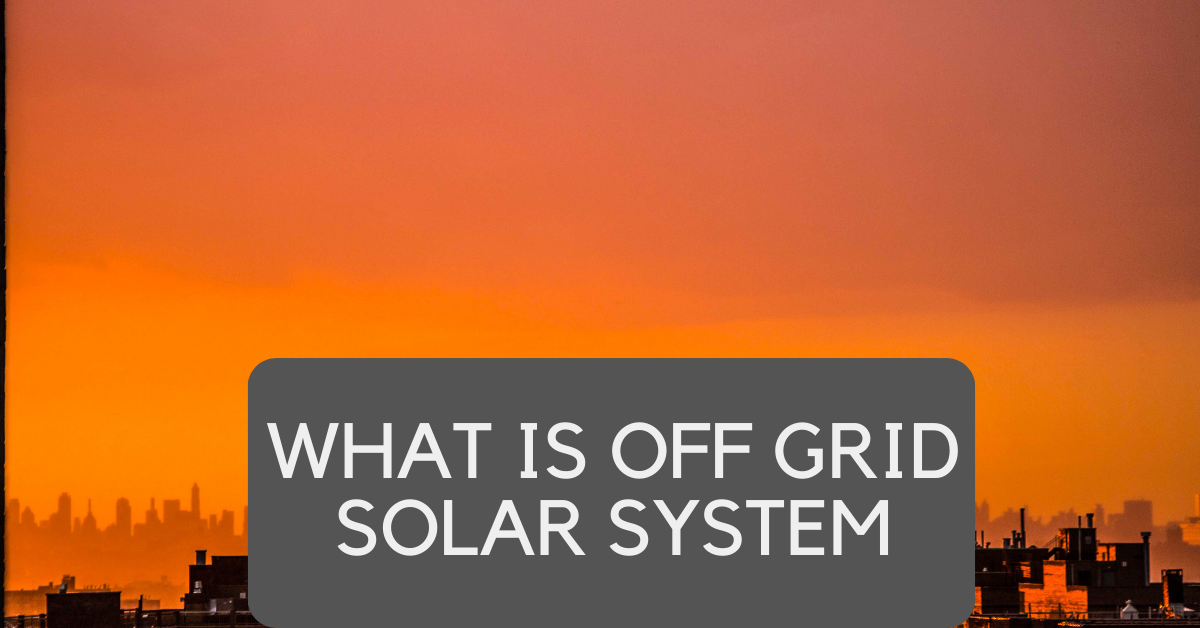What is Off-Grid Solar System
In this article, we’ll explore the remarkable world of off-grid solar systems and why they’re becoming an attractive option for those looking to reduce their carbon footprint and take control of their energy needs.

Table of Contents
- What is Off Grid Solar System
- Parts of Off Grid Solar System
- Advantages
- Disadvantages
- Conclusion. Final Solar Thought
In today’s world, where we rely heavily on a constant supply of electricity, the concept of living off the grid might seem like a throwback to a bygone era. However, for many, off-grid living powered by solar energy is a conscious choice that offers not just energy independence but also a greener, more sustainable lifestyle.
In broad terms, an off-grid solar system refers to any system that operates independently of the main electrical grid. It achieves complete autonomy and relies solely on its own infrastructure to meet all energy consumption needs.
This independence is a defining feature that distinguishes off-grid systems from grid-tied systems, where electricity is sourced from and fed back into the centralized grid.
The self-sufficiency of off-grid solar systems makes them particularly well-suited for remote areas where connecting to the main grid is impractical or expensive, such as remote cabins, mountain retreats, or rural communities, off-grid solar systems offer a reliable and sustainable energy solution.
In the aftermath and ongoing phases of the Covid pandemic, there has been a notable increase in the number of individuals embracing off-grid living, particularly within mobile environments such as RVs or solar-powered boats. Traditionally, the concept of off-grid living conjured images of remote areas, far from the hustle and bustle of city life—where survival meant procuring food, sourcing water, and living a self-sufficient lifestyle. However, contemporary interpretations of off-grid living have evolved, now encompassing a more comfortable and less survival-oriented approach. Individuals are opting for a lifestyle that combines the freedom of being away from urban centers with the convenience of mobile living. We will dedicate another section in this blog focused on mobile systems, its design, calculations and consideration.

While off-grid systems offer a high degree of independence, it’s important for users to carefully assess their energy needs, properly size their systems, and adopt energy-efficient practices to ensure a reliable and sustainable power supply. The combination of solar panels, energy storage (batteries), and efficient energy management allows individuals and communities to embrace a lifestyle that is both environmentally conscious and self-reliant.
Parts of Off Grid Solar System
Given that this is fundamentally a solar panel system, its core components remain consistent and are equally vital, as suboptimal design choices can impede their functionality. These essential elements include solar panels, battery banks, charge controllers, and inverters. For a more detailed explanation, please refer to our article discussing the various components of a solar system.
Advantages of Off Grid Solar System
The primary advantage of an off-grid system is its independence from power companies, eliminating the need to monitor and pay utility bills, offering a sense of freedom. This autonomy is especially valuable for those embracing a mobile lifestyle, providing versatility and mobility. However, the paramount benefit lies in its positive environmental impact. By utilizing this system, you generate clean, renewable energy, significantly reducing reliance on fossil fuels and thereby minimizing your carbon footprint.
Disadvantage of Off Grid Solar System
The upfront cost of establishing off-grid systems is notably higher, particularly for those opting for a more advanced and reliable setup, involving expenses on components like panels and batteries. Despite the initial financial investment, the system tends to pay for itself over an extended period. Another consideration is the self-reliance aspect of off-grid living, as technicians may not be readily available, necessitating some engineering knowledge for maintenance. This self-maintenance approach contributes to higher maintenance costs in terms of both money and time, with daily check-ups and preventive measures. For those in mobile systems like RVs or vans, additional regulations and fees may apply, depending on the city, requiring permits for extended stays.
To learn more about using solar system in general. Please follow this link
Conclusion. Final Solar Thoughts
As technology advances and costs continue to decrease, off-grid solar systems are becoming an increasingly attractive option. They offer energy independence and a greener way of living, making them a compelling choice for those seeking a more sustainable and self-reliant lifestyle.
So, whether you’re looking to reduce your environmental impact, live in a remote location, or simply embrace a more sustainable way of living, off-grid solar systems may be the path to a brighter future—one powered by the sun.
Also, despite the acknowledged disadvantages, particularly in light of the collective experience of the pandemic, individuals are placing significant emphasis on mental health considerations. The appeal of off-grid living lies in the freedom it offers, providing people with a valuable sense of autonomy and an opportunity to prioritize their mental well-being. This newfound appreciation for personal freedom is becoming a driving force for those choosing to embrace an off-grid lifestyle.
Embracing off-grid solar systems can be a transformative experience, offering both environmental and personal benefits. It’s a step toward self-reliance and sustainability, and it opens the door to a greener, more independent lifestyle.

